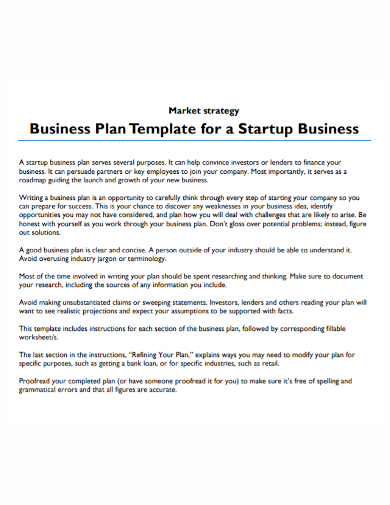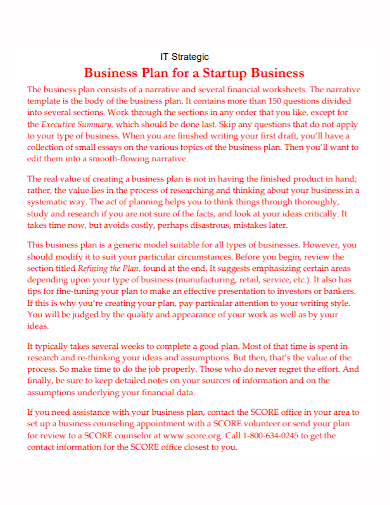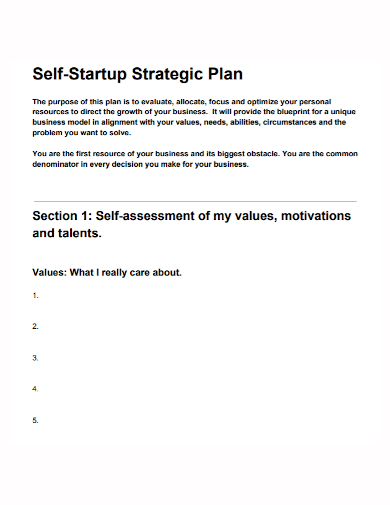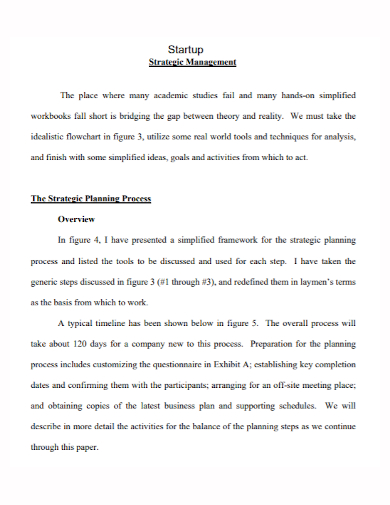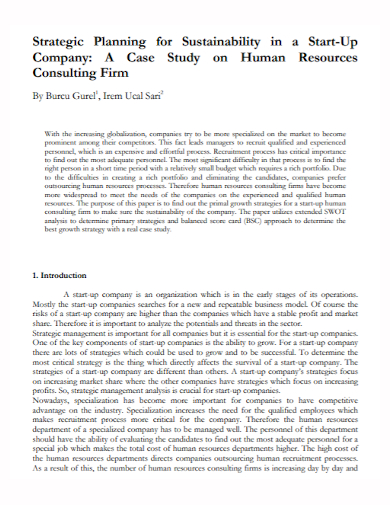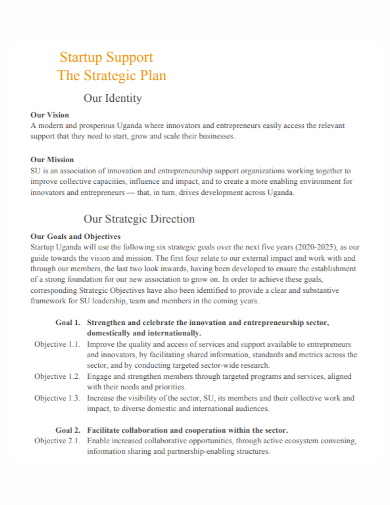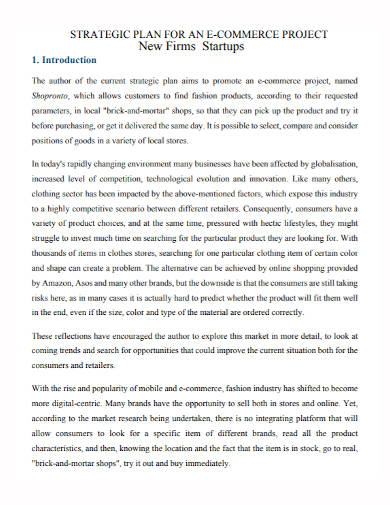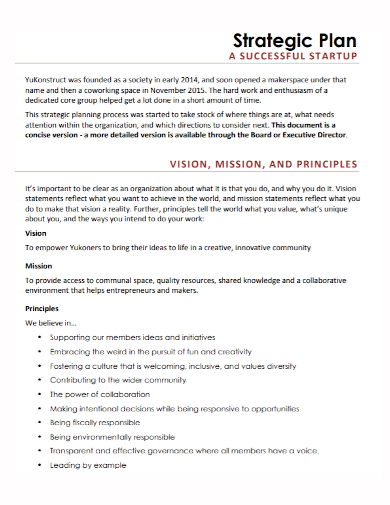Having a strategic plan in place is one of the keys to starting a new business successfully. This aids businesses in determining their course, planning for the future, identifying opportunities, and anticipating problems. It also aids businesses in keeping up with changing client needs and market trends, staying ahead of the competition, uniting employees around a common goal, and making better business decisions. Although a strategic plan is essential for business success, new owners may find it difficult to know where to begin.
10+ Strategic Plan Samples
Growing a business necessitates making numerous decisions about how to expand your operations. Developing a strategic plan is an important part of growth planning. It will assist you in developing a realistic vision for your company’s future, allowing you to maximize your company’s growth potential. A strategic plan is not the same as a business plan. Setting short- or mid-term goals and defining the steps required to achieve them is the focus of a business plan. A strategic plan is usually focused on a company’s mid-to-long-term objectives and explains the basic strategies for achieving those objectives. This guide explains the fundamentals of strategic planning. It explains how to create a strategic plan, highlights some key points to consider, and demonstrates how to move from planning to implementation.
1. Startup Strategic Plan Template

2. Startup Business Strategic Plan
3. IT Strategic Startup Business Plan
4. Self-Startup Strategic Plan
5. Startup Management Strategic Plan
6. Startup Promotion Strategic Plan
7. Startup Company Strategic Plan
8. Startup Support Strategic Plan
9. Startup Project Strategic Plan
10. Startup Analysis Strategic Plan
11. Sample Startup Strategic Plan
Strategic Planning for Startups
- Start with a vision – What do you want your business to look like in three to five years? Be as specific as possible. What will you have accomplished as a result of your efforts? What competitive advantage will you have? What kind of culture will you have? What methods will people use to collaborate? What will your company’s customer service policy be? What will be the means of communication between people? Which markets will you have exploited? What methods will people use to make decisions? What new services are you planning to offer? What will people do to show that they are accountable? What kind of a name will you have? What will other organizations and the community think of your business?
- Identify the roadblocks – It could be policies, procedures, or attitudes, among other things. They are sometimes obvious, and sometimes they aren’t. Consider the issues that your new business faces. Do you have a limited amount of money to start your business? Rather than hiring true talent, why not hire warm bodies? Is your marketing strategy unfocused? Platforms that are no longer in use? Is your pricing model inconsistent? Squirrel syndrome, perhaps? Determine what might stand in the way of realizing your vision and write it down.
- Identify the strategies – What steps will you take to overcome your obstacles and achieve your goals? These strategies can take the form of projects, initiatives, events, and so on. What will you do, for example, to overcome an unfocused marketing strategy and establish brand recognition? Make strategic alliances with well-known brands? How do you figure out what makes you stand out from the competition? Create strategies for each of your stumbling blocks, being as specific as possible.
- Specifics of the implementation should be nailed down – In your first year, what strategies will you concentrate on? What specific, measurable, actionable, realistic, and time-bound steps are required? When and who will do what? To keep your plan moving forward, divide your first year into quarters and drill down into the specifics of what will happen in each quarter. Consider whether the timing seems feasible and whether anyone has too much on their plate as you consider your overall strategy. Set priorities and rearrange as needed. Next, figure out how you’ll hold yourself and others accountable for sticking to the plan. Schedule follow-up meetings regularly, and review and revise your plan at least once a year.
FAQs
What is the purpose of strategic planning?
The goal of strategic planning is to establish your company’s overall goals and develop a plan to achieve them. It entails taking a step back from day-to-day operations to consider where your company is headed and what its priorities should be.
Why does strategic planning matter more to a growing business?
Taking the proactive step to expand a business entails accepting the risks that come with it. Spending time determining where you want to take your company – and how you’ll get there – should help you mitigate and manage those risks. As your company grows and becomes more complex, so will your strategy formulation, both to maintain growth and to help you gather the leadership and resources you need to keep your company growing.
Consider options that challenge the way business has been done up to this point when developing a strategic plan. It’s possible that some decision-making will be delegated to others, or that processes that worked well in the past will no longer be compatible with plans. It’s tempting for business owners and managers to dismiss alternatives that are uncomfortable for them personally, but doing so can jeopardize your strategic plan and, ultimately, your company’s growth.
Related Posts
FREE 7+ Fashion Business Plan Samples in PDF
FREE 10+ Sprint Planning Samples In MS Word | Google Docs | PDF
FREE 10+ Wedding Planning Samples in MS Word | Apple Pages | Powerpoint | PDF
FREE 9+ Monthly Study Planner Samples in PSD | Illustrator | InDesign | PDF
FREE 9+ Sample Curriculum Planning Templates in PDF | MS Word
FREE 10+ Teacher Development Plan Samples in MS Word | Google Docs | Apple Pages | PDF
FREE 10+ Basketball Practice Plan Samples in PDF
FREE 12+ School Business Plan Samples in PDF | MS Word | Apple Pages | Google Docs
FREE 7+ Client Strategic Plan Samples in PDF | MS Word
FREE 11+ Trucking Business Plan Templates in PDF | MS Word | Google Docs | Pages
FREE 7+ Small Hotel Business Plan Samples PDF | MS Word | Apple Pages | Google Docs
FREE 14+ Bakery Business Plans in MS Word | PDF | Google Docs | Pages
FREE 4+ Yearly Lesson Plan Samples in PDF
FREE 50+ Strategic Planning Samples in Google Docs | Pages | PDF | MS Word
FREE 10+ Construction Project Plan Samples in MS Word | Google Docs | Apple Pages | PDF

